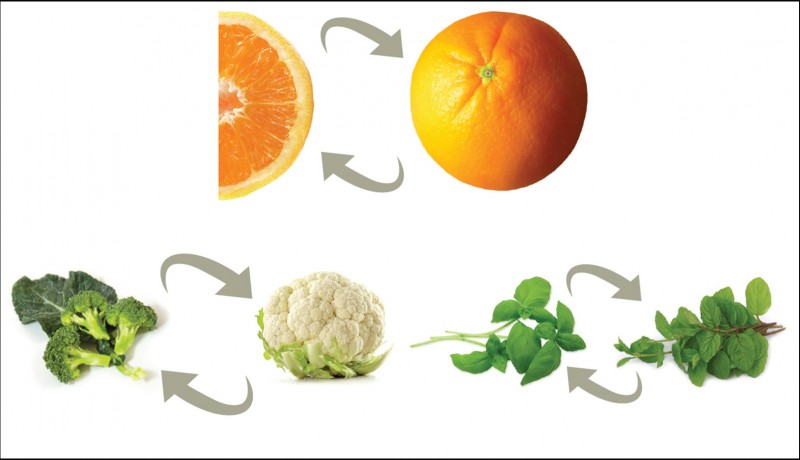
Health

Swap exotic foods with local substitutes to optimise your health, says wellness consultant Naini Setalvad
The food racks in the supermarket today are full of exotic foods that promise to boost immunity and optimise health. For instance, you find chia seeds that are high in fibre; quinoa that is high in protein, and tangerine that boosts Vitamin C… the list is unending. Food companies are increasingly recommending exotic foods and health-conscious silvers are abiding by their advice.
While I agree that the silver diet should be healthy, I recommend local or seasonal foods instead of exotic foods for optimum health. “Healthy food leads to a healthy body, healthy mind and ultimately a healthy nation and makes the world a brighter place to live in,” said late President Dr A P J Abdul Kalam at a function held on 16 August 2008 at Mumbai’s K C College. The quote still resonates in my mind, especially because that was the day I received an award from him for my contribution towards raising nutritional awareness in the country.
Dr Kalam believed in living healthy; according to him, it was one of the key reasons for his achievements. However, few people know that his diet was simple, without any exotic or expensive ‘super foods’. In fact, he endorsed the concept of eating foods that are local, seasonal, fresh, and as simple as possible. Local Indian foods not only help you prevent, retard and reverse diseases, they also boost immunity levels. So, why not swap your exotic foods with local Indian substitutes?
Quinoa with amaranth
Nutritionists say quinoa is full of protein and fibre. Our desi amaranth, also known as rajgirah, has a very high content of lysine and amino acid and is an excellent source of protein. Traditionally consumed during the fasting period, amaranth is not new to silvers. This seed flour is widely known to help the body absorb calcium and produce energy. And it is especially beneficial for silvers as ageing is associated with weakness of the bones. So ensure you include this daily in your diet.
Broccoli with cauliflower
A young patient once came to me for consultation and claimed cauliflower was the ‘ghost’ or ‘dead’ version of broccoli because it was white compared to green broccoli. I had to explain to him that cauliflower belongs to the cruciferous group of vegetables, making it a powerful source of antioxidant and high in fiber, much like broccoli. It has wonderful benefits and hence it makes more sense for the young as well as silvers to buy ‘local broccoli’, which is cauliflower!
Tangerine with orange
While there are exotic varieties of the orange available such as the tangerine or Chinese mandarin, when it comes to Vitamin C and fibre content, the locally found orange is on top of the citrus chain. It boosts the immune system, keeps blood pressure under check and fights cold. The added benefit: it is local, easily available and cheaper.
Arugula with spinach
You must have often come across arugula leaves in salads when dining out. According to me, these leaves are just a fancier version of our humble spinach leaves. The calorie, protein and fibre content of both are quite similar. And when it comes to minerals and vitamins, spinach scores even higher. It contains more A, C and K vitamins, folate, potassium, magnesium, manganese and iron. So my vote is for nutrient-dense spinach over arugula leaves anytime! Remember to add a dash of lime juice over your spinach leaves. Spinach contains oxalates that may interfere with the absorption of nutrients; the Vitamin C from the lemon will counter them.
Basil with tulsi
The exotic basil leaf is packed with antioxidants and helps boost immunity. The humble Indian tulsi leaf also contains antibacterial and antifungal properties; it helps purify blood and is known to cure innumerable diseases. This magical herb builds immunity, improves digestion, fights anxiety and depression, reduces diabetes, and cures problems of the eye, kidney, skin and teeth that are common in silvers. Chewing a few tulsi leaves every day also drastically reduces stress levels in the body.
Greek yoghurt with homemade yoghurt
Have you ever noticed that your homemade yoghurt (or ‘curd’) is smoother on the tongue and more refreshing than a store-bought one prepared in a plant? Homemade yoghurt does not need any artificial sweetener or salt to enhance its flavour and is packed with enough bacteria to boost your immunity. It is a good source of protein and easy to consume as you do not have to chew it; thus, it is highly recommended for silvers.
Chia with flaxseeds or sabja
Imported chia seeds are rich in omega-3 fatty acids, protein, fibre, antioxidants and calcium. However, we have locally available sabja seeds with the same properties that provide similar benefits without creating a dent in your pocket. We also have flaxseeds, commonly known as alsi, which are equally rich in omega-3 fatty acids and available everywhere.
Coconut oil capsule with coconut
Why would you swallow coconut capsules when delicious, ripe coconut—found across the length and breadth of India—is more beneficial to silvers? You can blend it to make chutneys and stews; grate and sprinkle it on vegetables or salads; or cold-press it to make coconut oil. It has anti-bacterial properties and helps silvers manage their weight and diabetes; improves metabolism and digestion; wards off Alzheimer’s; and slows down ageing.
Simple and healthy Indian recipes
CAULIFLOWER-STUFFED TOMATOES
Ingredients
- Tomatoes: 300 gm
- Cauliflower: 50 gm; grated
- Coconut: 15 gm; grated
- Peanuts: ½ tbsp; coarsely ground
- Coriander leaves: ½ cup; chopped
- Chilli paste: ½ tsp
- Salt and lemon to taste
Method
Slice off the top of the tomatoes and scoop out the insides. Put a pinch of salt inside the scooped part of each tomato. Keep the tomatoes inverted so the excess water is drained out. Stir-fry the grated cauliflower; add coconut, peanuts, chilli paste, coriander leaves, salt and lemon to it, and mix well. Stuff the scooped tomato with the cauliflower mixture. Serve at room temperature or chilled.
SPINACH RAITA
Ingredients
- Yoghurt (from low-fat milk): 1 cup
- Spinach leaves: 5-6; chopped
- Coriander leaves: 1 tsp
- Green chilli paste: 1 tsp
- Cumin seeds: ¼ tsp
- Sesame seeds: 1 tsp
- Walnut (or peanuts): 2 tsp; crushed
- Date chutney: 1 tsp
- Black salt to taste
Method
Clean the spinach leaves thoroughly. Finely chop the spinach and coriander leaves. Stir the yoghurt well in a bowl and add spinach and coriander leaves. Then, add the green chilli paste, cumin seeds, sesame seeds, walnuts, date chutney and black salt to the bowl. Mix well and serve chilled.
FLAXSEEDS MUKHWAAS
Ingredients
- Flaxseeds: 50 gm
- Fennel seeds: 50 gm
- Sesame seeds: 50 gm
- Salt and lemon to taste
Method
Mix the fennel seeds and sesame seeds in a vessel. Add salt and lemon and mix well. Roast on low heat continuously till they turn crisp. Then add flaxseeds and mix well. Your delicious mukhwaas is ready.
Setalvad is an obesity and lifestyle disease consultant who offers diet counselling at Health for You, a wellness clinic in Mumbai, as well as online. Visit www.nainisetalvad.com for more details or write to contact.us@harmonyindia.org if you have any queries for her
Photo: iStock Featured in Harmony — Celebrate Age Magazine October 2018
you may also like to read
-
Hot tea!
If you enjoy sipping on that steaming hot cup of tea, think twice. New research establishes a link between drinking….
-
Weight and watch
If you have stayed away from lifting weights at the gym, thinking it might not be a good idea for….
-
Toothy truth
Research has established a clear association between cognitive function and tooth loss when cognitive function score was categorised into quintiles…..
-
PRODUCT OF THE MONTH
Automatic Blood Pressure Monitor Measure your blood pressure and pulse rate with no fuss Hypertension, or high blood pressure, could….







